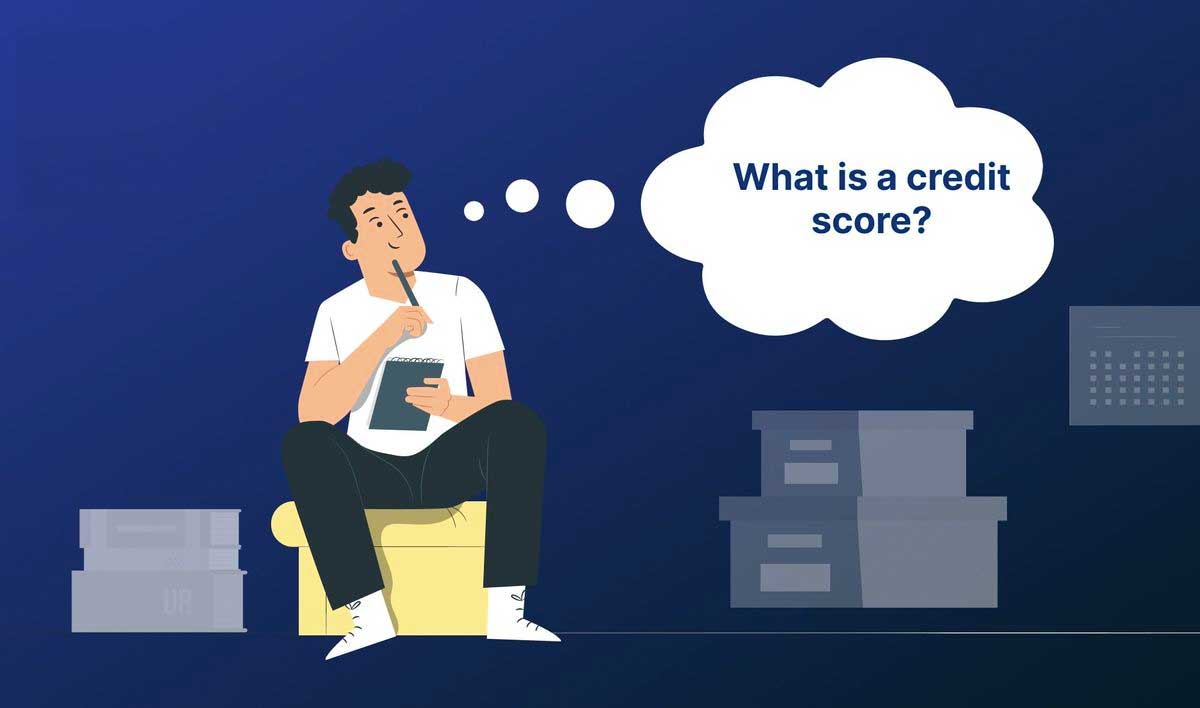

What is a credit score?
Mon Dec 26 2022
Last updated:Mon Dec 26 2022

You've definitely heard of the term "credit score" if you're seeking to apply for a loan, mortgage, or credit card. Yet, what exactly is a credit score and why is it so significant?
A credit score is only a three-digit figure that shows your creditworthiness and ranges from 300 to 900. The credit score has an impact on both the loan amount approved and the interest rate charged on the loan. Your chances of getting approved for loans or credit cards, as well as better interest rates and terms, increase with your credit score.
In India, who offers credit scores?
TransUnion, CIBIL (Credit Information Bureau (India) Limited), Equifax, Experian, and CRIF Highmark are the four main credit bureaus in the nation. These credit bureaus obtain and preserve credit data on people and organizations from a variety of lenders, including banks, credit card firms, and other financial institutions.
Depending on the credit bureau you check with, your score may differ significantly because each credit bureau uses a different formula to determine credit ratings. The elements that affect your score, nevertheless, are typically the same for all bureaus. These include your credit use, credit history, length, types of credit used, and most current credit inquiries. Verify your credit rating.
A Decent Credit Score: What Is It?
A person with a higher credit score is in a stronger financial position and is more likely to be approved for a loan with a lower interest rate.
| Score | Category | Meaning |
| NA/NH | No Point | You do not have a credit history. |
| 300-549 | Poor | a history of bad money management and missed payments. as a high-risk borrower, it was accepted. |
| 550-649 | Fair | There are many illustrations of insecure loans, payment problems, etc. Moderate default risk for the borrower |
| 650-749 | Good | a credit history that is well-rounded, showing evidence of wise financial decisions and prompt repayments. a risk-averse borrower. |
| 750-799 | Very Good | a proven track record of prudent financial management, effective credit use, and absence of defaults. |
| 800-900 | Excellent | This is the highest credit score range offered by Experian, reflecting a credit history that is almost flawless. |
Experian Credit Score Calculation: How Does It Work?
| Factors | Percentage | What Affects These Factors? |
| Payment background | 35% | Your credit score may be raised if you pay off your credit accounts on time each month, including loans, EMIs, and credit card balances. |
| Credit usage | 30% | Your credit limit use percentage, account balances, and the total amount you owe are all factors. |
| Credit history duration | 15% | Your credit accounts' average ages are taken into consideration. Credit cards and older accounts can persuade lenders that you have a trustworthy credit history. |
| Credit mix | 10% | It's advised to have a healthy balance between secured loans, such as mortgages or vehicle loans, and unsecured loans, such as credit cards and personal loans, to show that you can handle both. |
| New credit | 10% | Have you recently opened new accounts or applied for new credit (like a loan or a credit card)? A higher volume of inquiries may result in a lower score. |
How may credit scores be raised?
There are a few straightforward things you can do to improve your credit score. Remember the following advice: